Article 370: Supreme Court Hearing Complete: What Next?
The outcome of the Supreme Court cases is, in our opinion, a foregone conclusion. But what next?
Article 370: An In-Depth Analysis of its Abrogation and Post-Judgment Consequences
Introduction
As the Supreme Court of India, led by Chief Justice D.Y. Chandrachud, wraps up its 16-day hearings on the constitutional validity of the abrogation of Article 370, the nation waits with bated breath for the judgement. The hearings have been exhaustive, scrutinizing the legality of revoking Jammu and Kashmir's special status and the abolition of its statehood. The Government, represented by the Attorney-General and Solicitor-General, argued for the repeal as a necessary step for full integration into the Union, citing reduced terrorism and increased prosperity in the region. In contrast, petitioners led by senior lawyers contended that the repeal undermines federalism and is unconstitutional, arguing that Article 370 had acquired a permanent nature. With the Bench stating that their focus is on the events leading up to the abrogation of the Article, the verdict is now keenly awaited, and its implications could be monumental for the country.
The Historical Tapestry of Kashmir
Kashmir's history is a rich mosaic that spans millennia, beginning with the empire of Kanishka and the profound impact of Buddhism on the region. With the advent of Islam in the 14th century, the landscape transformed again, later becoming a favoured destination of the Mughal Emperor Jahangir. Post-Mughal era, it became a part of the Sikh Empire, only to fall under Dogra rule after the Anglo-Sikh wars. The region's unparalleled natural beauty has been immortalized in the famous Persian couplet by Amir Khusrau: "Agar firdaus bar roo-e zamin ast, hamin ast-o hamin ast-o hamin ast," which translates to "If on the earth be an eden of bliss, it is this, it is this, it is this."
Prelude to the Instrument of Accession and Article 370
The complex nature of Article 370 has its roots in the turbulent events that surrounded Jammu and Kashmir's eventful accession to India in 1947. Maharaja Hari Singh, the Hindu monarch presiding over a Muslim-majority state, faced a critical quandary. He had to decide whether to integrate with India, align with neighbouring Pakistan, or assert his State as an independent sovereign entity. The dilemma was exacerbated by the State's strategic geographical contiguity with Pakistan. Matters escalated when tribal invaders, sponsored by Pakistan, launched an aggressive campaign, leaving the beleaguered Maharaja Hari Singh with little choice but to formalize Jammu and Kashmir's union with India through the Instrument of Accession on October 26, 1947.
It was only subsequent to this official accession that Prime Minister Pandit Jawaharlal Nehru directed the Indian Armed Forces to step in. Although the forces succeeded in safeguarding Srinagar and the majority of the valley, nearly one-third of the region had already fallen under unauthorized Pakistani occupation. To diffuse the situation, a UN-mediated ceasefire was enacted on December 31, 1948, effectively delineating the territory into two parts separated, not by an official international border but by a "Line of Control" (LOC).
It is n this intricate tapestry of historical and geopolitical factors, that Article 370 was to emerge a “temporary provision” in the Indian Constitution, granting Jammu and Kashmir an unparalleled degree of autonomy within the Indian Union.
Birth of Article 370
Article 370 was formally and contemporaneously incorporated into the Indian Constitution on January 26, 1950, the same day when the Constitution itself came into force. This inclusion was executed through The Constitution (Application to Jammu and Kashmir) Order, 1950, a Presidential Order specifying which articles and subjects of the Indian Constitution would apply to the State, in line with clause b(i) of Article 370. Initially, only two articles from the Indian Constitution were fully applicable to Jammu and Kashmir, and any extension of other constitutional provisions required explicit approval from the State's Legislative Assembly. Over the years, the Article has undergone multiple amendments via Presidential Orders, always with the concurrence of the J&K Legislative Assembly. Though housed under the section labeled "Temporary, Transitional and Special Provisions," Article 370 has been misinterpreted as quasi-permanent in certain quarters due to its intricate history and periodic amendments.
Lingering Issues
Despite the legal status of Jammu & Kashmir as an "integral part of India," multiple challenges have continued to plague the State, most notably Pakistan-sponsored terrorism and the political complexities associated with Pakistan-Occupied Kashmir (POK). These persistent issues have remained unresolved through several significant events, such as the Indo-Pak War of 1965, the Indo-Pak War of 1971—which led to the birth of Bangladesh—and the consequential Simla Agreement. Even subsequent peace talks and military operations, including Operation Parakram and the Kargil Conflict, failed to bring lasting stability to the region. India maintains its stance, as outlined in the Simla Agreement, that all disputes related to Jammu & Kashmir must be resolved bilaterally, without the intervention of any third-party mediator, including the United Nations.
The Paradox: J&K's Unique Status vs. Indian Parliament’s Sovereignty
While the Indian Parliament holds sovereign power over the extension of central laws to its States, Article 370 presented an exception. It granted the erstwhile State of Jammu & Kashmir its own Constitution and Flag, and endowed its Legislative Assembly with a virtual veto over central laws that were otherwise applicable across the country. This situation was both a contradiction and an anachronism that had outlived its utility. Increasingly, it was exploited by anti-India elements, both within the country and abroad, to foment separatist sentiments and undermine the unity and integrity of India—actions that were misaligned with the aspirations of a resurgent India.
The Political Stance: The BJP's Unwavering Stand on Article 370
From its inception, the Bharatiya Janata Party (BJP) and its ideological predecessor, the Bharatiya Jana Sangh, have maintained an unambiguous position on the issue of Article 370. Grounded in a fervent vision for a unified India, this stance was further solidified by the sacrifices of key leaders like Shyama Prasad Mukherjee, whose impassioned call for "One Nation, One Constitution" became a foundational pillar for the party's ideology. The BJP not only made the revocation of Article 370 a core issue in their electoral manifestos over the years, but it also became a touchstone of the party's broader commitment to national integration. This unwavering resolve symbolizes the BJP's conviction that the special status accorded to Jammu and Kashmir was an anachronism that needed rectification to fulfill the aspirations of a resurgent India.
The Abrogation of Article 370: A Watershed Moment in the History of India
On August 5, 2019, a seismic shift in Indian politics unfolded when Home Minister Amit Shah announced in the Rajya Sabha the issuance of The Constitution (Application to Jammu and Kashmir) Order, 2019, effectively abrogating Article 370. This Presidential Order not only repealed the 1954 Presidential Order that had granted Jammu and Kashmir a special status but also declared that all provisions of the Indian Constitution would apply to the region unconditionally. The bold move led to the dissolution, rather liquidation, of the J&K Legislative Assembly and bifurcated the state into two Union Territories—Jammu and Kashmir, and Ladakh—thereby fully integrating it into India in both letter and spirit. This historic action, ratified by both Houses of Parliament, fulfilled a long-standing national integration agenda and showcased the unflinching resolve of the executive and legislative branches. It finally settled a seven-decade-old issue that had long been a hotbed of political, social, and international discord, reinforcing India's unwavering commitment to its territorial integrity.
New Union Territories and Promise of Statehood
Following the abrogation of Article 370, the Indian Parliament swiftly enacted laws to bifurcate the former State of Jammu and Kashmir into two distinct Union Territories: Jammu and Kashmir, and Ladakh. This legislative action was accompanied by promises of early elections and an eventual return to full statehood for J&K, signaling a commitment to democratic governance. Local body elections have already taken place, marking a significant step in restoring participatory democracy at the grassroots level. These collective measures reflect an earnest attempt to integrate the territories more closely with the rest of India while addressing local aspirations and complexities.
Tangible Benefits
Post-abrogation of Article 370, Jammu and Kashmir has been witnessing a surge in investments, particularly in the tourism and infrastructure sectors, as the region opens up to new opportunities. Government statistics point to a notably improved law and order situation, lending credence to the claim of a more stable environment. This newfound stability was globally recognized when Srinagar was chosen as a venue for hosting G-20 functions, a move that not only boosts the local economy but also signals international confidence in the region's governance and security. These developments collectively hint at a transformative phase for J&K, aimed at elevating its socio-economic landscape and integrating it more closely with India's broader developmental trajectory.
Legal Probabilities: My Take
While predicting the outcome of the Supreme Court's judgement on the abrogation of Article 370 would be speculative at best, informed analysis can offer a glimpse into potential legal outcomes. Based on my understanding of constitutional law and the intricacies of the Indian political landscape, I'd like to present five compelling reasons that, in my opinion, strongly suggest that the abrogation is likely to be upheld by the Apex Court.
A. Affidavits of Allegiance
The petitioners were required to submit affidavits asserting their allegiance to the Constitution of India on the final day of hearings. This procedural requirement substantially limits their options to take the matter to international forums. It is also a symbolic reaffirmation that their arguments must remain within the framework of Indian constitutional law, which makes the case for dismissal stronger.
B. Origin and Amendment by Presidential Order
Article 370 was originally introduced through a Presidential Order and has seen multiple amendments in a similar manner over the years. The abrogation also occurred through a Presidential Order, making the action consistent with historical precedents. This offers strong legal grounding for the dismissal of the petitions against the abrogation.
C. No Formal Constitutional Amendment Required
The dissolution of the J&K Legislative Assembly and the State being under President's Rule meant that formal consultation was done with the Governor of J&K by the President of India. Therefore, there was no necessity for a formal constitutional amendment. Given that major political parties support this move, the chances of legal objections being sustained are slim.
D. The Finality of the Abrogation
The abrogation of Article 370 has been executed so comprehensively that its resuscitation appears to be a legal non-starter. The act is so decisive that it can be likened to a "decent burial," emphasizing the finality and irrevocability of the measure. To extend the metaphor, if the abrogation is akin to a cremation, then an affirming judgment from the Supreme Court would serve as the ultimate and symbolic immersion of its ashes into the Jhelum River, a waterway with significant historical and geographical links, which eventually flows into Pakistan. This would underscore not just the permanency but also the broader geopolitical implications of the action.
E. Comprehensive Rejection and Dismissal
The meticulous examination of this issue by a 5-Judge Constitution bench underlines the highest level of judicial rigor applied to the case. Coupled with compelling legal arguments favoring the abrogation, the likelihood of dismissing all pending petitions is high, thereby reinforcing the robustness of India's democratic processes and legal institutions.
These considerations transcend mere legal formalities; they are intrinsically tied to the bedrock of our constitutional jurisprudence, rendering the case for abrogating Article 370 virtually impregnable. While neither the Indian Parliament nor the Supreme Court is beholden to foreign powers, the very fact that these petitions have been admitted and given a full hearing within the parameters of the Indian Constitution also broadcasts a potent message to the global community. It underscores India's steadfast commitment not just to international law, but to the rule of law at large.
The Road Ahead
Assuming the Supreme Court ultimately dismisses all pending petitions and upholds the constitutional validity of Article 370's abrogation, it poses an important question for us as a Nation and as a collective citizenry: What next? The path we choose from here will not only shape the future of Jammu and Kashmir but will also have lasting implications for the unity and integrity of India. So, what are the steps we should consider taking moving forward? Our take is:
(a) Rejoice, Not Humiliate
The inevitable dismissal of the petitions against the abrogation of Article 370 should be an occasion for collective national joy rather than a tool to browbeat or humiliate citizens of a particular faith residing in J&K and Ladakh. The Prime Minister's assurance in this regard will go a long way in fostering national unity.
(b) Complete and Respected Citizens
Residents of J&K and Ladakh should be encouraged to see themselves as full-fledged stakeholders in the development of the region and the nation. Shunning violence and hate, they should partake in the economic and social opportunities that arise post-abrogation, thereby enhancing the peace and prosperity of the region.
(c) Restoration of Statehood
The restoration of full statehood for Jammu and Kashmir is a crucial milestone in normalizing governance and fostering stronger relations. Although Ladakh may continue as a Union Territory for the foreseeable future, the complete assimilation of J&K into the Indian Union is vital for its long-term stability and progress. Holding elections for a new Legislative Assembly, which will stand on equal footing with legislative bodies in other states and without its previous veto authority, would be a logical and fitting next step.
(d) Continued Financial Assistance
Continued special financial assistance from the Central Government is imperative for catalyzing accelerated economic growth in the region. This funding is not only critical for infrastructure development, bolstering local businesses, and enhancing residents' quality of life, but it also serves to affirm to the people of Jammu and Kashmir that the abrogation was not a manoeuvre to withdraw such vital support. The sustained financial commitment is a testament to the long-term plan for the region's development and prosperity.
(e) Environment-Conscious Investments
Investment in the region should be judiciously planned, giving due consideration to its unique environmental attributes and rich cultural heritage. Sectors such as tourism, traditional crafts, and local industries offer substantial avenues for development, but they must be approached with an emphasis on sustainability and eco-friendliness. Balancing economic growth with ecological preservation is not merely an option but a necessity for the long-term well-being of the region. New private investment should be strategically attracted to align with these core principles, ensuring that the financial influx does not compromise the area's natural resources or cultural identity. Such a well-thought-out and sustainable approach to development will not only benefit the local communities but also set a standard for responsible investment elsewhere.
(f) Diplomatic Counter-Offensive
India must take a firm diplomatic stance against Pakistan's continued occupation of territories that rightly belong to India. This includes a call for the return of Pak-Occupied Kashmir and other areas. A strong diplomatic counter-offensive also necessitates exposing Pakistan's human rights violations in Balochistan.
Summing Up
By meticulously planning these steps, we are not only ensuring a peaceful and prosperous future for the region but also fortifying India's integrity and unity. This monumental task calls for continued visionary leadership, something that the present administration has demonstrated in ample measure.
Summarizing and in Conclusion
The abrogation of Article 370 stands as a historic milestone in India's journey toward comprehensive national integration, territorial consolidation, and socio-political unity. Led by the unyielding resolve of Prime Minister Narendra Modi and the strategic acumen of Home Minister Amit Shah, this audacious policy move has not only streamlined governance but also signaled the culmination of long-held aspirations for a unified India.
The move was executed with both legal precision and political savvy, ensuring that the constitutional proprieties were fully observed. The consultation process, in particular, upheld the integrity of our democratic fabric by involving the Governor of J&K at a time when the state was under President's Rule. This crucial step fortified the Government's position against a plethora of legal challenges, leaving little room for contestation.
More than just a legislative act, the abrogation has been a philosophical affirmation of the sovereignty of the Indian Parliament over an erstwhile exceptional arrangement that was anachronistic in nature. It has rectified what many viewed as a constitutional anomaly and brought J&K on par with other states in terms of legal and administrative frameworks.

The transformative impact on the ground is already visible. Whether it's the influx of new investments, burgeoning tourism, or the improvement in law and order—J&K and Ladakh are beginning to reap the dividends of full integration into the Indian Union. The promise of returning to full statehood for J&K further underlines the government’s commitment to a balanced approach that respects regional aspirations.
In terms of international diplomacy, the move has enabled India to present a more assertive stance in calling out Pakistan’s illegal occupation and human rights abuses in various territories. This policy maneuvering, backed by robust legal positioning, has also been met with overarching support from major political parties, testifying to its national importance.
The abrogation of Article 370 has thus emerged as a paradigmatic case of robust political will meeting meticulous legal scrutiny, resulting in an outcome that aligns with the nation's long-term interests. It heralds a new chapter for J&K, Ladakh, and indeed for India as a whole, in which the maxim of 'unity in diversity' is not just a slogan but a lived reality.
Jai Hind!
Jai Bharat!

REQUEST: If you enjoyed this article from 'The KBS Chronicle', we encourage you to share it with others who might also find it valuable.
Click the link below to access easy sharing options for Twitter, Facebook, and Email. The same link also generates a web-link that can be shared via messaging apps like WhatsApp, Telegram, or Signal, in both individual and group settings.
Thank you for your support.




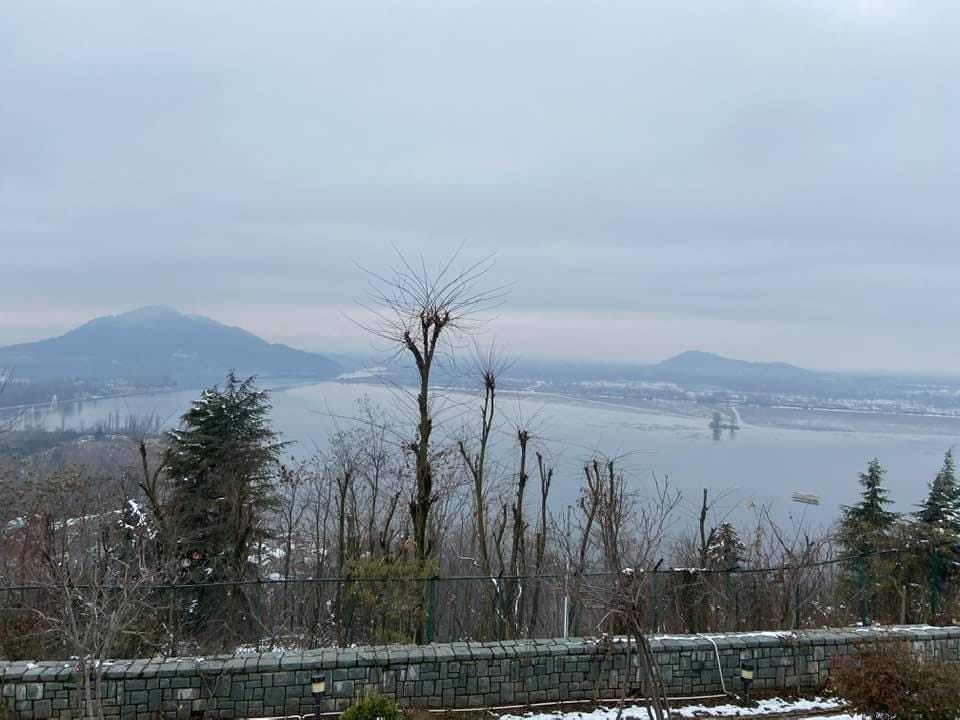
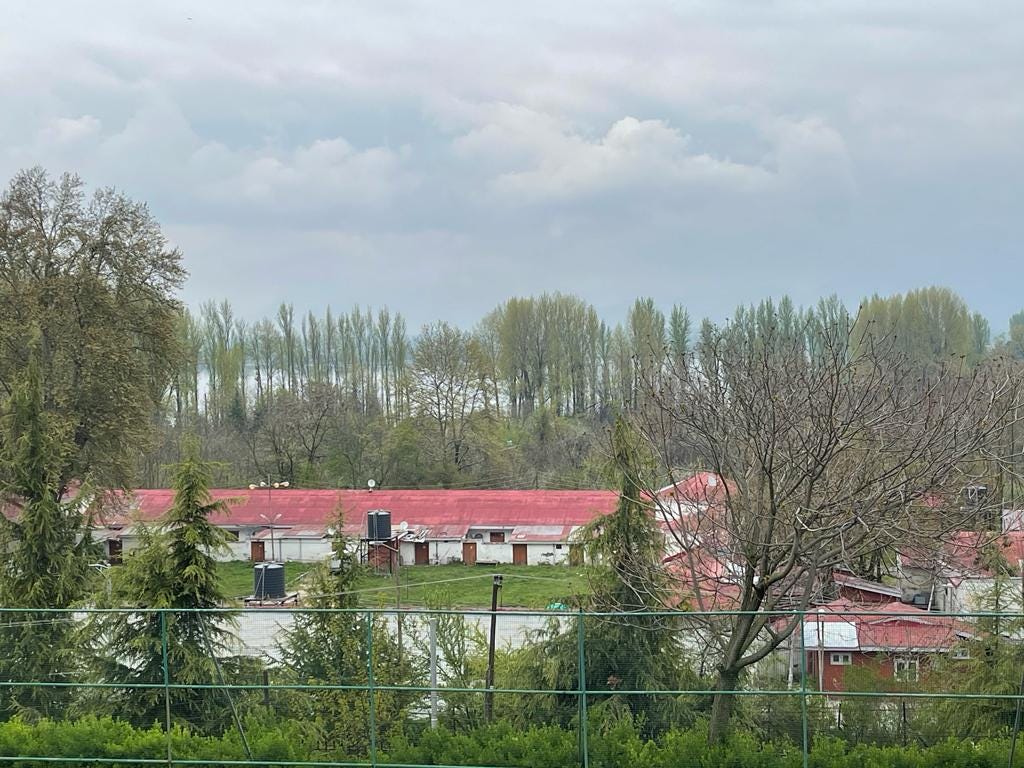


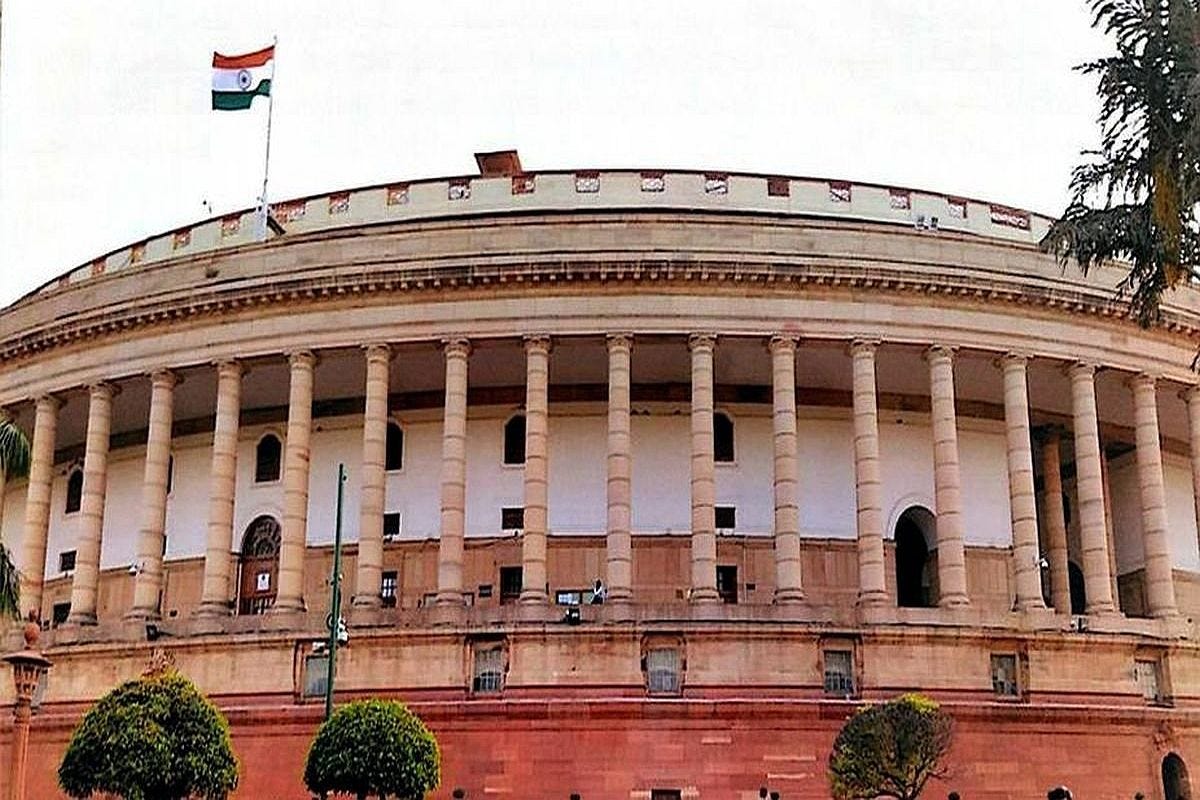
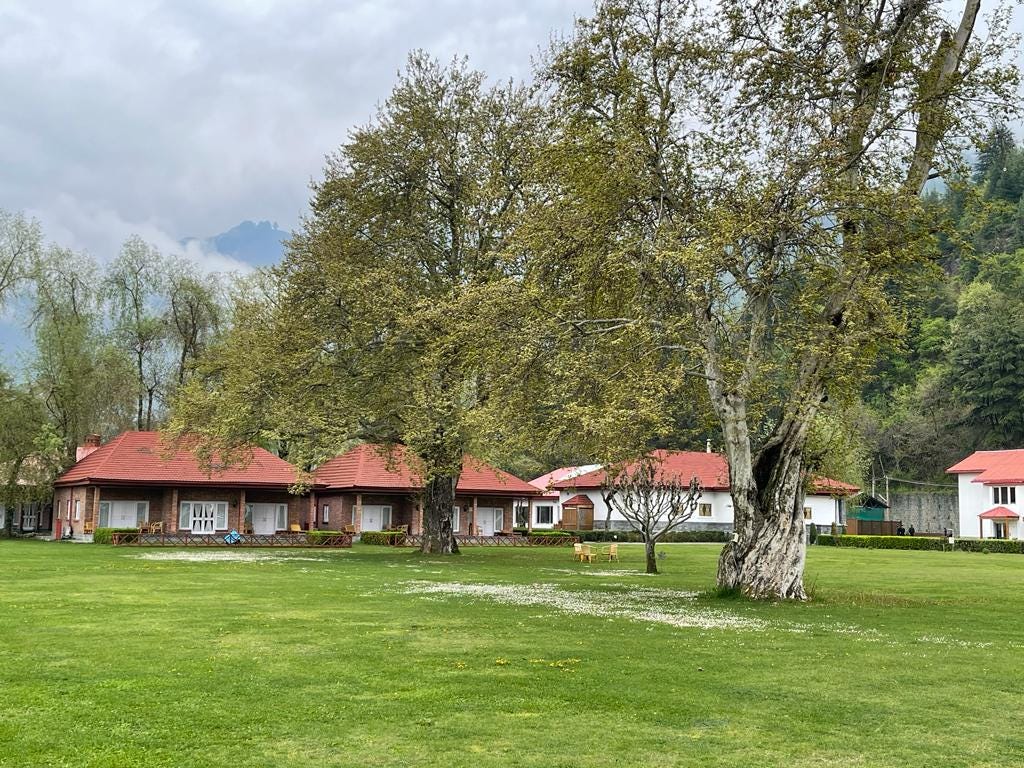


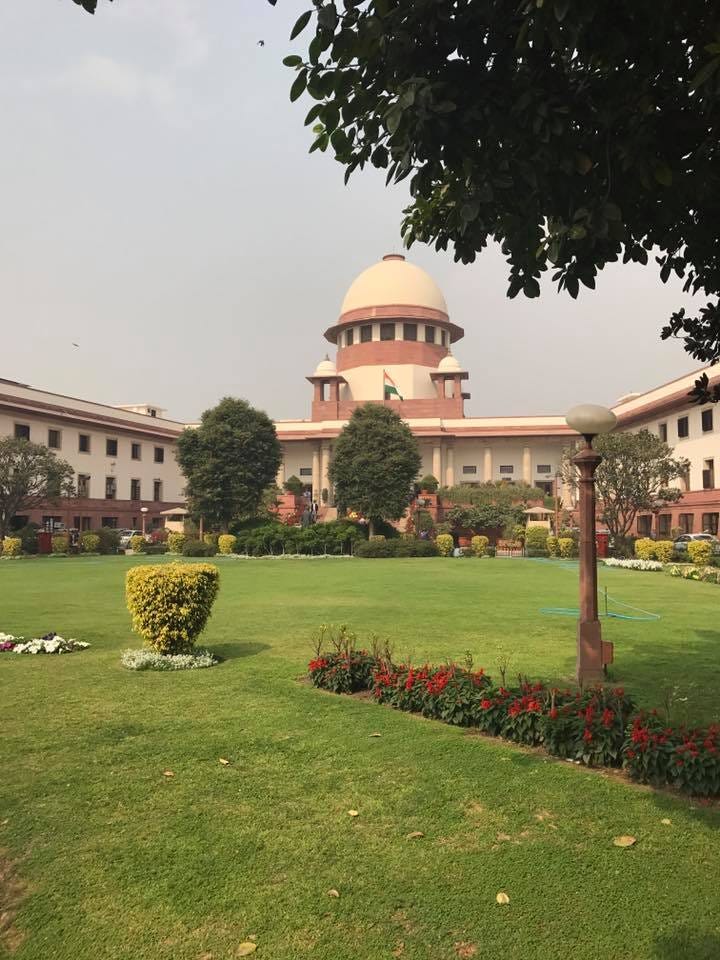





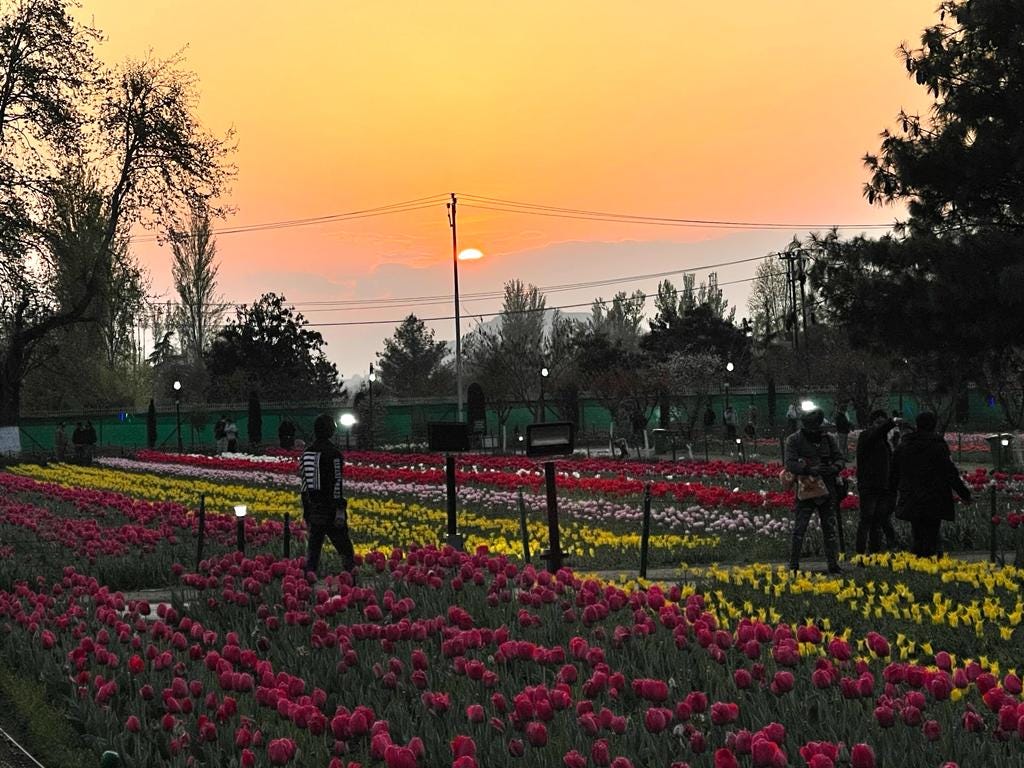
Your write up at hand. Your magical way ( had no interest to read something so complicated , my naively approach towards the subject) of presenting it so eloquently and easy to understand requires a loud shout out and respect. I am sure even Kapil Sibal would love to read it.
Enjoyed and thank for the education.
Best